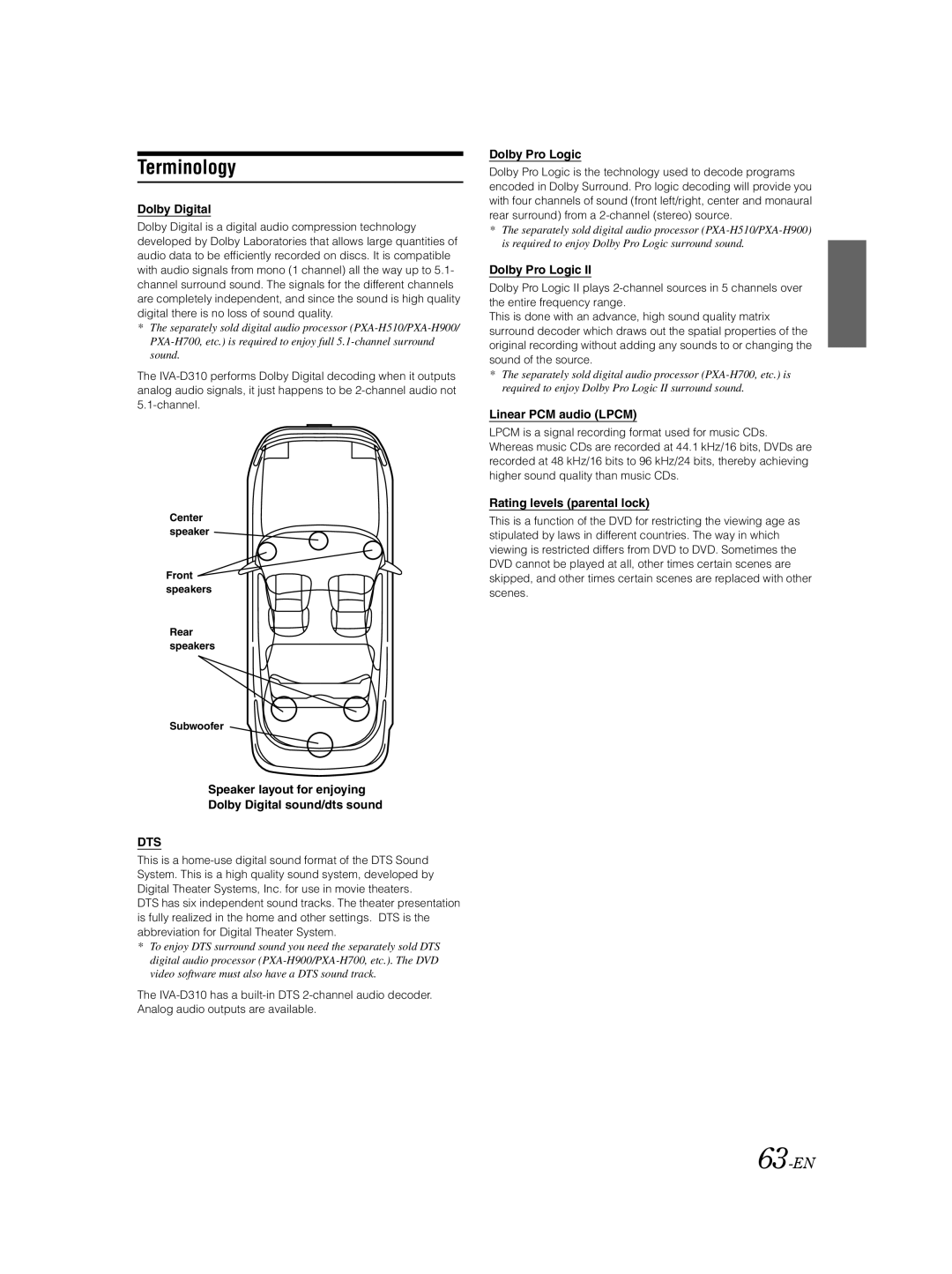
Terminology
Dolby Digital
Dolby Digital is a digital audio compression technology developed by Dolby Laboratories that allows large quantities of audio data to be efficiently recorded on discs. It is compatible with audio signals from mono (1 channel) all the way up to 5.1- channel surround sound. The signals for the different channels are completely independent, and since the sound is high quality digital there is no loss of sound quality.
*The separately sold digital audio processor
The
Center speaker
Front speakers
Rear speakers
Subwoofer
Speaker layout for enjoying
Dolby Digital sound/dts sound
DTS
This is a
DTS has six independent sound tracks. The theater presentation is fully realized in the home and other settings. DTS is the abbreviation for Digital Theater System.
*To enjoy DTS surround sound you need the separately sold DTS digital audio processor
The
Dolby Pro Logic
Dolby Pro Logic is the technology used to decode programs encoded in Dolby Surround. Pro logic decoding will provide you with four channels of sound (front left/right, center and monaural rear surround) from a
*The separately sold digital audio processor
Dolby Pro Logic II
Dolby Pro Logic II plays
This is done with an advance, high sound quality matrix surround decoder which draws out the spatial properties of the original recording without adding any sounds to or changing the sound of the source.
*The separately sold digital audio processor
Linear PCM audio (LPCM)
LPCM is a signal recording format used for music CDs. Whereas music CDs are recorded at 44.1 kHz/16 bits, DVDs are recorded at 48 kHz/16 bits to 96 kHz/24 bits, thereby achieving higher sound quality than music CDs.
Rating levels (parental lock)
This is a function of the DVD for restricting the viewing age as stipulated by laws in different countries. The way in which viewing is restricted differs from DVD to DVD. Sometimes the DVD cannot be played at all, other times certain scenes are skipped, and other times certain scenes are replaced with other scenes.
